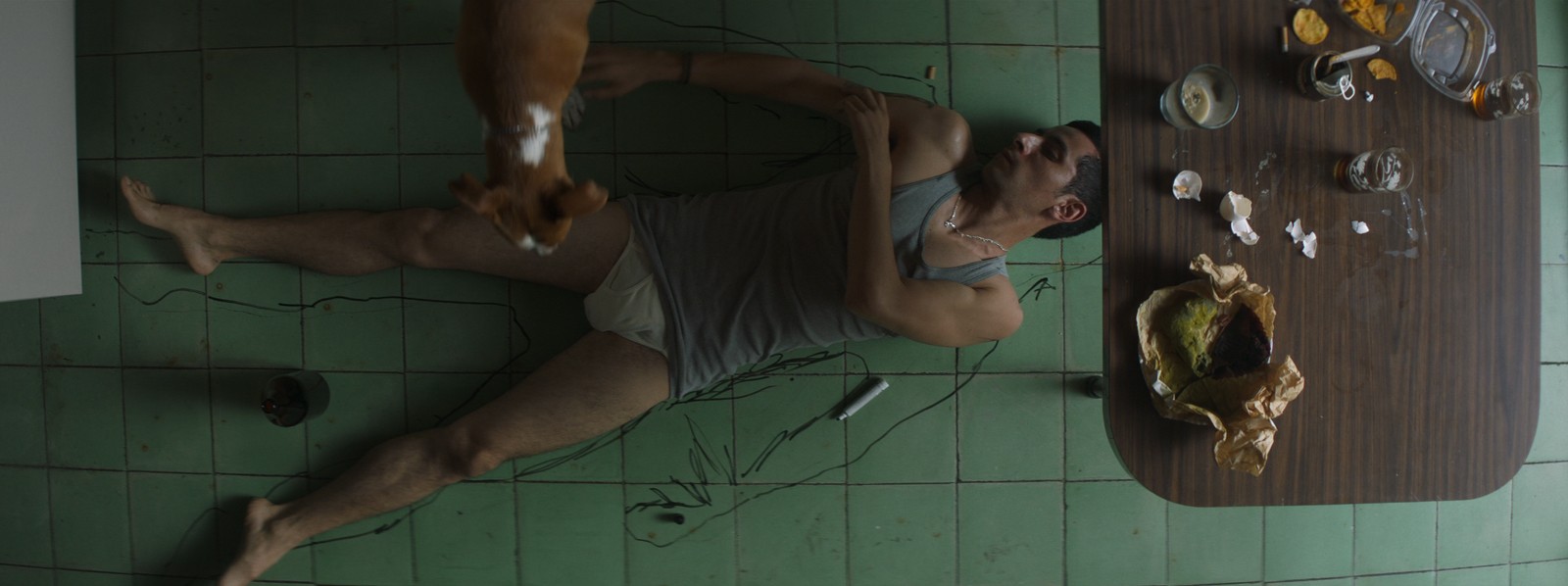There has never been a less auspicious time to make a “cop movie.” As scrutiny abounds from both within (content warnings on streaming services) and externally (social media) towards the past output of media producers, also suspect are the bevy of films and series that glamorize law enforcement, or see the police as uncomplicated arbiters of justice. Of course, last summer’s Black Lives Matter protests initiated all kinds of brave new thinking about a potential world devoid of cops. Like the Western genre, perhaps all police thrillers in future will be revisionist ones.
Mexican director Alonso Ruizpalacios’ new Netflix-produced quasi-documentary, A Cop Movie, has thus arrived right on cue. Don’t accuse it of giving the thin blue line yet another flattering cinematic close-up––this film is on its best, most self-consciously virtuous behavior to show its sensitivity to the current moment, so much so that it ends up bet-hedging and toothless. While it’s always engaging, fleetly made, and clear, it’s also an irritating film, addressed to an audience that will already harbor skepticism towards the police, with a box of Brechtian tricks that obscure how cursory its insights are.
The film is already on uncertain ground as it introduces the two cops who will act as our whistleblowers to the Mexico City force’s wider corruption. They are Teresa (played, if that’s the word, by Mónica Del Carmen) and Montoya (Raúl Briones, likewise) who narrate their life in the force and their motivations for joining in direct-to-camera address. Immediately you realize something’s up; the stories appear too authentic to be fabrications, yet the subjects have an ease on camera that confirms we’re not seeing the real people placed in a contrived, cinematic setting. More than on-screen avatars, Del Carmen and Briones are playing vessels for the true testimony of the “real” Teresa and Montoya. Ruizpalacios has constructed a narrative striptease whereby the inspirations for its more stylied sequences are revealed in their stark reality at the end; it’s the rare film that includes a short making-of documentary for itself about two-thirds of the way in.
This is all very clever and intricate, but only in the most superficial manner. It’s a shame, because when the narrative frippery relaxes and the two principals are able to speak without distraction, more insights come to the fore. As opposed to the United States, the actual law-upholding authority of the Mexican police is often seen as a moot point; bribes shield those that can pay from arrest, and crime continues unabated with district prosecutors and judges also embroiled in corruption. For Teresa, the appeal of the force comes from her father’s background in police work; filtered through him, it appeared a symbol of morality and order in an unmoored world. Montoya’s predicament is more representative: it was a route out of poverty, but with the added ache of having to patrol and target people from his own socio-economic background.
A Cop Movie is too gentle to rouse new disdain for an institution currently subject to such piercing critique. It chooses to make the self-consciousness about its subject matter into a twee form of guilty self-awareness, when what’s needed is bitter medicine, or just insights that better challenge our moral certainties. In the aforementioned documentary segment, filming is permitted in real police facilities, displaying some element of collaboration and transparency between filmmakers and subject––not a dealbreaker, but showing a commitment to balance. Apt for Netflix’s original content, A Cop Movie has a closer feel to TV––which is over-mindful of the biases and attention spans of its audience––than a cinematic documentary, one more likely to have the courage of its opinionated convictions.
A Cop Movie premiered at the Berlin International Film Festival and will be released by Netflix.

